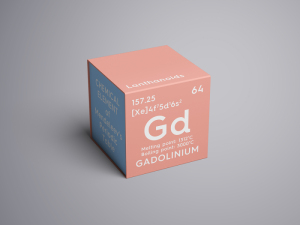by
Thomas Dworetzky, Contributing Reporter | December 20, 2017
In the ongoing discussion over gadolinium-based contrast agents, the U.S. Food and Drug Administration (FDA) has now issued a safety communication.
It will require “a new class warning and other safety measures for all gadolinium-based contrast agents (GBCAs) for magnetic resonance imaging (MRI) concerning gadolinium remaining in patients’ bodies, including the brain, for months to years after receiving these drugs,” the agency said in a statement.
No direct link to adverse health impacts have been found in those with normally functioning kidneys, noted the agency, explaining that “we have concluded that the benefit of all approved GBCAs continues to outweigh any potential risks.”



Ad Statistics
Times Displayed: 138115
Times Visited: 7975 MIT labs, experts in Multi-Vendor component level repair of: MRI Coils, RF amplifiers, Gradient Amplifiers Contrast Media Injectors. System repairs, sub-assembly repairs, component level repairs, refurbish/calibrate. info@mitlabsusa.com/+1 (305) 470-8013
That said, the added review and talks with the Medical Imaging Drugs Advisory Committee, has led to changes designed to highlight retention issues with MR imaging using GBCA.
These include a new Medication Guide for patients to be read prior to getting a GBCA, as well as requiring makers to perform further animal and human studies over its safety.
The kidneys usually clear the agents, but trace amounts have been found in the body. For those with a higher risk of retention, such as patients who may need multiple doses, those who are pregnant, children and those with inflammatory conditions, the agency advises care, but stressed, “do not avoid or defer necessary GBCA MR scans.”
For those at risk, the FDA pointed out that linear GBCAs “result in more retention and retention for a longer time than macrocyclic GBCAs,” and to give them accordingly.
As a result of its review, stated Dr. Janet Woodcock, director of the FDA's Center for Drug Evaluation and Research, “we recommend that health care professionals consider the retention characteristics of each agent when choosing a GBCA for patients who may be at higher risk, such as those who may require repeat GBCA MR scans to monitor a chronic condition."
In specific, it stated that body levels of gadolinium are highest with Omniscan (gadodiamide) or OptiMARK (gadoversetamide) compared with Eovist (gadoxetate disodium), Magnevist (gadopentetate dimeglumine), or MultiHance (gadobenate dimeglumine). Gadolinium levels are lowest when using Dotarem (gadoterate meglumine), Gadavist (gadobutrol), and ProHance (gadoteridol) – and levels are similar for these agents.
Although the health impact of gadolinium retention has yet to be established, the agency noted that “we are continuing to assess the health effects of gadolinium retention in the body and will update the public when new information becomes available.”

